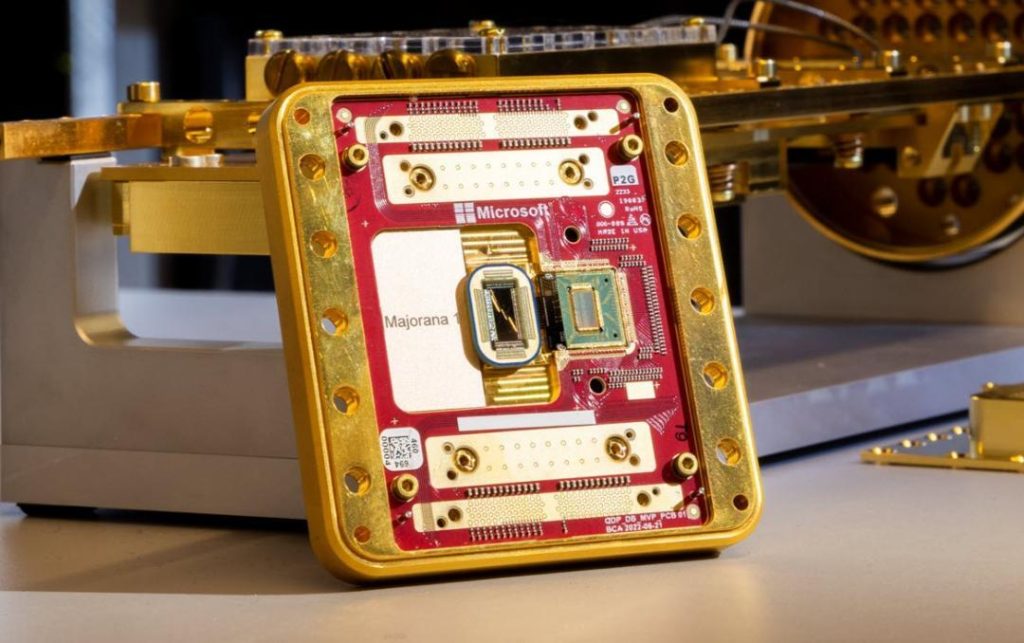
Microsoft Creates New State of Matter, Unveils ‘Majorana 1’ Quantum Chip
In a groundbreaking achievement, Microsoft has created a new state of matter, a significant breakthrough in the field of quantum computing. The company has introduced “topoconductor,” a special category of material that can generate an entirely new state of matter – not solid, liquid, or gas, but a topological state. This innovation has led to the development of “Majorana 1,” the first quantum processing unit built on a topological core.
This breakthrough has far-reaching implications, as it has the potential to create a truly meaningful quantum computer in the near future. Quantum computing has been gaining traction in recent years, with many experts predicting that it will revolutionize various industries, including finance, healthcare, and technology.
To understand the significance of this achievement, it’s essential to delve into the concept of topological states. In traditional quantum computing, qubits (quantum bits) are used to process information. However, qubits are prone to errors and are difficult to scale up. Topological states, on the other hand, are more stable and resistant to errors, making them an attractive alternative.
Microsoft’s topological conductor is a unique material that can create a topological state. This state is characterized by a unique property called the “Majorana fermion,” which is a quasiparticle that is its own antiparticle. This property allows for the creation of a robust and fault-tolerant quantum computer.
The Majorana 1 chip is the first quantum processing unit built on this topological core. It uses the unique properties of the Majorana fermion to process information in a way that is resistant to errors. This means that the chip can perform calculations with greater accuracy and speed than traditional quantum computers.
The implications of this breakthrough are vast. With the ability to create a truly meaningful quantum computer, Microsoft is poised to revolutionize various industries. Quantum computers have the potential to solve complex problems that are currently unsolvable with traditional computers. This includes tasks such as simulating complex systems, optimizing complex algorithms, and cracking complex encryption codes.
In addition to its potential applications, the Majorana 1 chip also represents a significant step forward in the development of quantum computing hardware. The chip is designed to be scalable, meaning that it can be easily integrated into larger systems. This makes it an attractive option for companies looking to develop their own quantum computers.
Microsoft’s achievement is the result of years of research and development. The company has been working on the topological conductor for several years, and the Majorana 1 chip is the culmination of that work. The company has also partnered with other organizations, including the University of California, Santa Barbara, to further develop the technology.
In a statement, Microsoft’s chief technology officer, Kevin Scott, said, “The Majorana 1 chip is a significant milestone in our efforts to develop a scalable and fault-tolerant quantum computer. We believe that this technology has the potential to transform various industries and are excited to see where it takes us.”
The development of the Majorana 1 chip is a significant achievement for Microsoft and the quantum computing community. It represents a major breakthrough in the field and has the potential to revolutionize various industries. As the technology continues to evolve, it will be exciting to see the applications and innovations that emerge.



